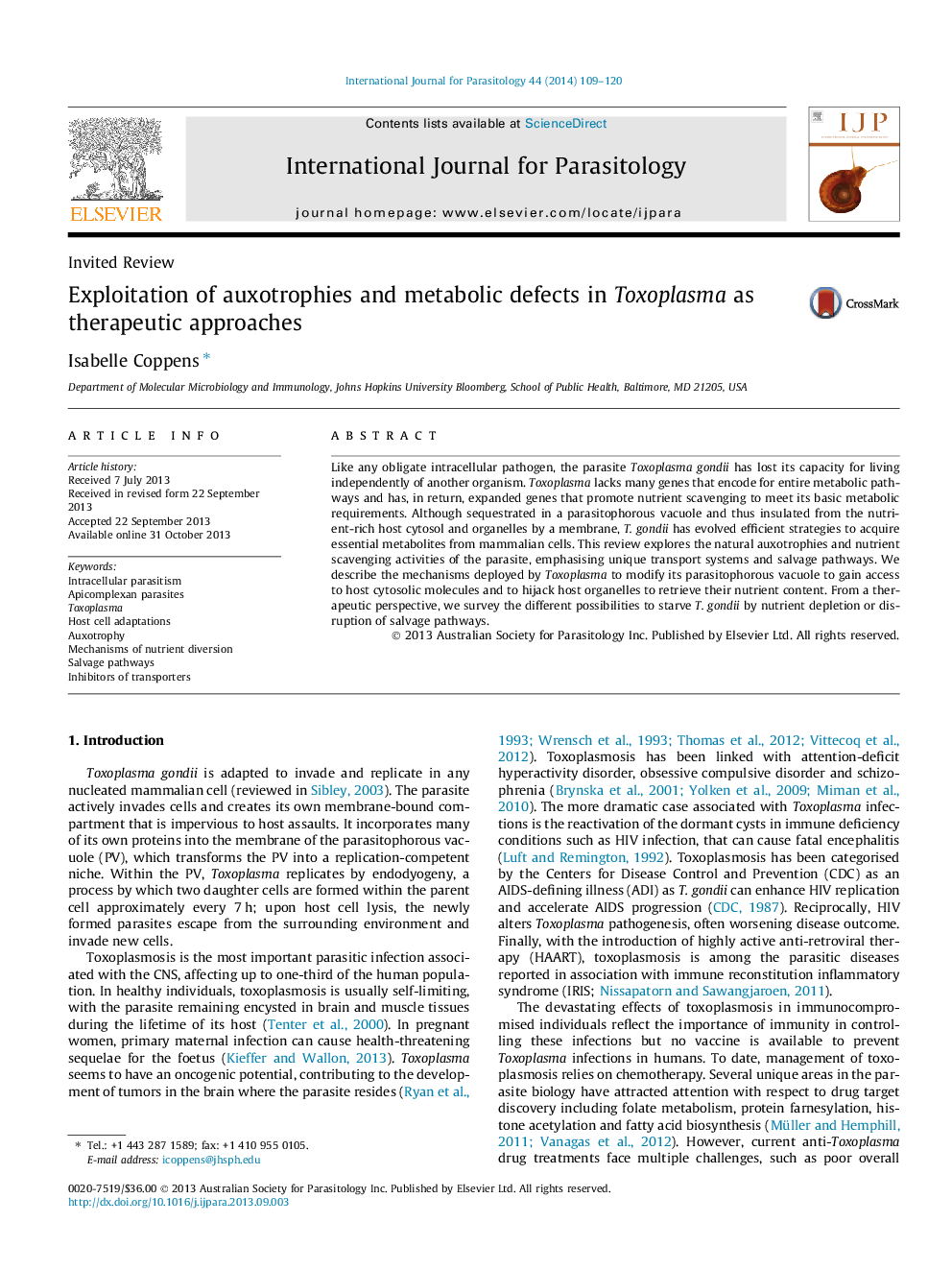| Article ID | Journal | Published Year | Pages | File Type |
|---|---|---|---|---|
| 2436091 | International Journal for Parasitology | 2014 | 12 Pages |
•Targeting specific microbial metabolic defects and auxotrophies is currently undergoing a renaissance.•The intracellular parasite Toxoplasma is auxotrophic for essential metabolites such as purines, polyamines and cholesterol.•Toxoplasma harbors many transport and salvage pathways to retrieve the needed nutrients from the host cell and organelles.•Exposure of Toxoplasma to inhibitors of transporters/enzymes in salvage pathways would lead to parasite starvation and death.
Like any obligate intracellular pathogen, the parasite Toxoplasma gondii has lost its capacity for living independently of another organism. Toxoplasma lacks many genes that encode for entire metabolic pathways and has, in return, expanded genes that promote nutrient scavenging to meet its basic metabolic requirements. Although sequestrated in a parasitophorous vacuole and thus insulated from the nutrient-rich host cytosol and organelles by a membrane, T. gondii has evolved efficient strategies to acquire essential metabolites from mammalian cells. This review explores the natural auxotrophies and nutrient scavenging activities of the parasite, emphasising unique transport systems and salvage pathways. We describe the mechanisms deployed by Toxoplasma to modify its parasitophorous vacuole to gain access to host cytosolic molecules and to hijack host organelles to retrieve their nutrient content. From a therapeutic perspective, we survey the different possibilities to starve T. gondii by nutrient depletion or disruption of salvage pathways.
Graphical abstractFigure optionsDownload full-size imageDownload high-quality image (136 K)Download as PowerPoint slide
